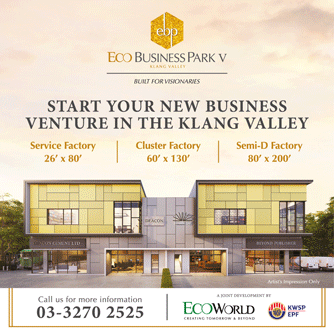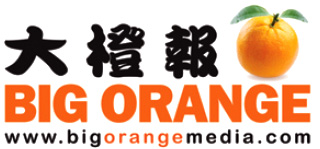Shipping Industry Awaits "Wind Of Change" In 2016
[ 22-12-2015 ]
Shipping Industry Awaits "Wind Of Change" In 2016
KUALA LUMPUR, Dec 21 (Bernama) -- Having taken the brunt of the global economic slowdown this year, Malaysia's shipping industry is clamouring for the "winds of change" in 2016, anticipating an increase in seaborne trade.
The year saw the Baltic Dry Index (BDI), an indicator that monitors the health of the world's economy by tracking the price of moving major raw materials by sea, slipped to a three-decade low of 498 points on Nov 20.
"The outlook across the globe for the shipping industry is uneven," Westports Holdings Bhd Chief Executive Officer (CEO) Ruben Emir Gnanalingam Abdullah said.
While some countries and regions recently experienced economic headwinds, others have sustained positive momentum, he added.
Hence, Westports is working closely with its clients to ensure they can maximise on the sectoral growth "tailwind", he told Bernama.
Besides global trade, commodity prices also have an impact on the shipping industry, said Shahrull Allam Shah Abdul Halim, CEO of Johor Port Bhd which is a wholly-owned unit of MMC Bhd.
When prices are lower, he said importers would tend to buy more commodities but it worked the other way around when prices increase.
Commodity prices are expected to remain stagnant or decline further in 2016, but this is not necessarily bad news for Johor Port, he added.
As a regional commodity hub and the world's largest palm oil terminal, Johor Port would benefit with increase in the usage of its warehouse, he said.
"More people will keep their commodities at our warehouse and sell it when they get the right price," he said, citing the London Metal Exchange (LME), the world centre for industrial metal trading, as one of the port's client.
Johor Port has allocated between RM300 million and RM400 million to refurbish its port to cater for future growth, which includes improvement to its wharf, warehouse expansion, as well as, refurbishment and purchase of new equipment.
Johor Port is currently handling only 800,000 twenty-foot equivalent units (TEUs), on an annual basis but has the capacity for 1.2 million TEUs.
As for the overall cargo handling capacity in 2015, Malaysian ports recorded a container throughput of 20.05 million TEUs between January and October 2015 as against 22.67 million TEUs registered in 2014.
To-date, the container business seems to be better than the neighbouring ports, thanks to the favourable exchange rate for transshipping in Malaysia, which has attracted liners to the country's shores.
For instance, Westports has started servicing three liners, namely CMA CGM Group, United Arab Shipping Company and China Shipping Container Lines Company.
Members of other shipping alliances such as 2M (which grouped the world's largest shipping lines Maersk and Mediterranean Shipping Company), the CKYHE Alliance and G6 Alliance, also berth with Westports but mostly for the gateway container volume.
Transport Minister Datuk Seri Liow Tiong Lai recently announced that Malaysia's cargo handling capacity was expected to grow over 7.5 per cent this year from the 22.67 million TEUs recorded in 2014.
The target would be driven by enhancing collaboration between Malaysia and China, including the sister-port initiatives.
Port Klang Authority has had sister-port relationship with the Port of Ningbo and Dalian.
With the revival of the 21st Century Maritime Silk Road (MSR) initiative, they have also embarked on establishing sister-port relationships with eight more Chinese ports -- Shanghai, Guangzhou, Xiamen, Fuzhou, Beibu, Taicang, Shenzhen and Hainan.
Meanwhile, among the significant developments in Malaysia's shipping industry this year were the revision of container tariffs in Port Klang after 14 years and the move by MMC Bhd to take full control of Northport operator, NCB Holdings Bhd.
MMC, which already holds a 30.13 per cent stake in NCB, acquired another 53.42 per cent, increasing its combined stake to 83.55 per cent thus triggering a mandatory general offer.
MMC has had announced that NCB would be delisted following the acquisition.
Meanwhile, the Transport Ministry, on Aug 5, approved port tariff revision to be implemented in two phases, with an average increase of 15 per cent in each.
The first phase was earlier slated to take effect on Sept 1, but was pushed forward twice to Oct 1 and then Nov 1, 2015. The second hike will be on Sept 1, 2018.
Port Klang's revised tariff covers container terminal handling charges for import, export, transshipment, shifting and re-stow, storage charge for container and handling charge for heavy lift or uncontainerised cargo.
Johor Port is also expected to follow suit, the revision, among others, will be in container terminal handling charges for import, export, transshipment and handling charges for dry, break, liquid and general cargoes.
"We're currently in talks with the Johor Port Authority on the tariffs and by the end of next year it could be finalised," said Shahrull Allam Shah.
The Johor Port Authority raised an average of 10 per cent of the overall port tariffs about three years ago, which is the first tariff revision since it commenced operations in 1977.
-- BERNAMA
The year saw the Baltic Dry Index (BDI), an indicator that monitors the health of the world's economy by tracking the price of moving major raw materials by sea, slipped to a three-decade low of 498 points on Nov 20.
"The outlook across the globe for the shipping industry is uneven," Westports Holdings Bhd Chief Executive Officer (CEO) Ruben Emir Gnanalingam Abdullah said.
While some countries and regions recently experienced economic headwinds, others have sustained positive momentum, he added.
Hence, Westports is working closely with its clients to ensure they can maximise on the sectoral growth "tailwind", he told Bernama.
Besides global trade, commodity prices also have an impact on the shipping industry, said Shahrull Allam Shah Abdul Halim, CEO of Johor Port Bhd which is a wholly-owned unit of MMC Bhd.
When prices are lower, he said importers would tend to buy more commodities but it worked the other way around when prices increase.
Commodity prices are expected to remain stagnant or decline further in 2016, but this is not necessarily bad news for Johor Port, he added.
As a regional commodity hub and the world's largest palm oil terminal, Johor Port would benefit with increase in the usage of its warehouse, he said.
"More people will keep their commodities at our warehouse and sell it when they get the right price," he said, citing the London Metal Exchange (LME), the world centre for industrial metal trading, as one of the port's client.
Johor Port has allocated between RM300 million and RM400 million to refurbish its port to cater for future growth, which includes improvement to its wharf, warehouse expansion, as well as, refurbishment and purchase of new equipment.
Johor Port is currently handling only 800,000 twenty-foot equivalent units (TEUs), on an annual basis but has the capacity for 1.2 million TEUs.
As for the overall cargo handling capacity in 2015, Malaysian ports recorded a container throughput of 20.05 million TEUs between January and October 2015 as against 22.67 million TEUs registered in 2014.
To-date, the container business seems to be better than the neighbouring ports, thanks to the favourable exchange rate for transshipping in Malaysia, which has attracted liners to the country's shores.
For instance, Westports has started servicing three liners, namely CMA CGM Group, United Arab Shipping Company and China Shipping Container Lines Company.
Members of other shipping alliances such as 2M (which grouped the world's largest shipping lines Maersk and Mediterranean Shipping Company), the CKYHE Alliance and G6 Alliance, also berth with Westports but mostly for the gateway container volume.
Transport Minister Datuk Seri Liow Tiong Lai recently announced that Malaysia's cargo handling capacity was expected to grow over 7.5 per cent this year from the 22.67 million TEUs recorded in 2014.
The target would be driven by enhancing collaboration between Malaysia and China, including the sister-port initiatives.
Port Klang Authority has had sister-port relationship with the Port of Ningbo and Dalian.
With the revival of the 21st Century Maritime Silk Road (MSR) initiative, they have also embarked on establishing sister-port relationships with eight more Chinese ports -- Shanghai, Guangzhou, Xiamen, Fuzhou, Beibu, Taicang, Shenzhen and Hainan.
Meanwhile, among the significant developments in Malaysia's shipping industry this year were the revision of container tariffs in Port Klang after 14 years and the move by MMC Bhd to take full control of Northport operator, NCB Holdings Bhd.
MMC, which already holds a 30.13 per cent stake in NCB, acquired another 53.42 per cent, increasing its combined stake to 83.55 per cent thus triggering a mandatory general offer.
MMC has had announced that NCB would be delisted following the acquisition.
Meanwhile, the Transport Ministry, on Aug 5, approved port tariff revision to be implemented in two phases, with an average increase of 15 per cent in each.
The first phase was earlier slated to take effect on Sept 1, but was pushed forward twice to Oct 1 and then Nov 1, 2015. The second hike will be on Sept 1, 2018.
Port Klang's revised tariff covers container terminal handling charges for import, export, transshipment, shifting and re-stow, storage charge for container and handling charge for heavy lift or uncontainerised cargo.
Johor Port is also expected to follow suit, the revision, among others, will be in container terminal handling charges for import, export, transshipment and handling charges for dry, break, liquid and general cargoes.
"We're currently in talks with the Johor Port Authority on the tariffs and by the end of next year it could be finalised," said Shahrull Allam Shah.
The Johor Port Authority raised an average of 10 per cent of the overall port tariffs about three years ago, which is the first tariff revision since it commenced operations in 1977.
-- BERNAMA






























